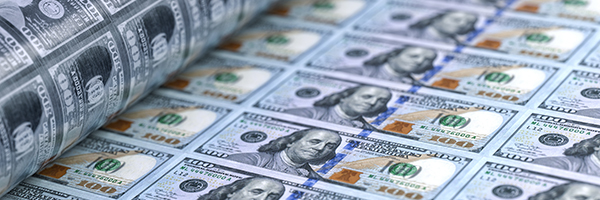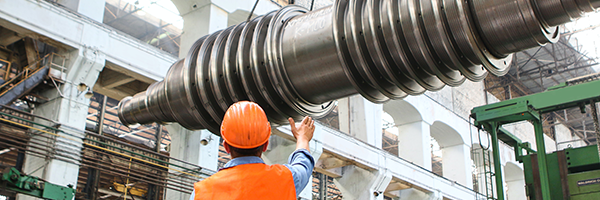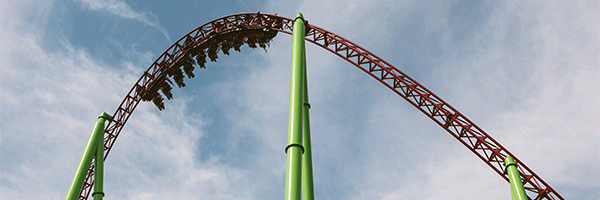Morning Briefing

April 27, 2025 | Daily JAM, Morning Briefing |
This week’s quarterly earnings reports from Microsoft (MSFT), Apple (AAPL), Meta Platforms (META) and Amazon.com (AMZN) face high earnings expectations from Wall Street analysts. Analysts expect the Magnificent Seven-—which also includes Alphabet (GOOG), Tesla (TSLA) and Nvidia (MVDA)-—to deliver an average of 15% earnings growth in 2025. That expectation has barely budged since the start of March despite the uncertainty of the Trump tariffs. The four megacaps reporting this week collectively have a nearly 20% weighting in the Standard & Poor’s 500.

April 27, 2025 | Daily JAM, Morning Briefing |
President Donald Trump’s tariffs on goods from China have disrupted trans-Pacific supply chains. In the three weeks since the tariffs took effect, ocean-container bookings from China to the U.S. are down by more than 60%, Ryan Petersen, founder and CEO of Flexport, a global shipping company, told the Washington Post. Cargo carriers that bring Asian goods to the Port of Los Angeles, the nation’s main Pacific gateway, have canceled 20 port calls next month, more than three times as many as last month, according to port data. The consequence will be “empty shelves in U.S. stores in a few weeks and covid-like shortages for consumers and for firms using Chinese products as intermediate goods,” Torsten Slok, chief economist for Apollo Global Management, told the Post. “Significant” layoffs in trucking, logistics and retail are likely as soon as May, Slok said.

April 25, 2025 | Daily JAM, Morning Briefing |
The S&P 500 gained more than 4% for this week. Some of that was the result of talk from the White House about possible tariff negotiations with China.As the week wore on, though, attention shifted from tariff talk to comments from Federal Reserve officials that seemed to suggest that the central bank might consider cutting interest rates as early as its June meeting if economic growth slowed. Yep, the Powell Put is back. In this scenario, bad earnings and bad economic news become good news because they push the Federal Reserve closer to cutting interest rates.

April 25, 2025 | Daily JAM, Morning Briefing |
First, the optimists among economists who believe the United States will dodge a Recession. And then the pessimists who say we’ll see the economy shrink in the first quarter of 2025. (First quarter GDP is scheduled to be reported on the morning of April 30.)

April 24, 2025 | Daily JAM, Morning Briefing |
Yesterday stocks rallied for a second day on “news” that President Donald Trump was considering plans to cut tariffs on China’s goods. The Wall Street Journal reported that under the proposals, the range could come down to between 50% to 65%–from the current 145%–as a result of a tiered approach that would see 35% levies on items not considered critical for national security and 100% on “national security” goods.“We’re going to have a fair deal with China,” President Trump told reporters on Wednesday. On Tuesday President Trump had said he’d be willing to “substantially” pare back his 145% tariffs on China. He turned down his aggressive rhetoric a day after meeting with executives from Walmart, Home Depot. and Target, who said import taxes could disrupt supply chains and raise the prices of goods., according to people familiar with the matter. I understand why stocks rallied on these reports. Investors and CEOs are all scared that these tariffs will reignite inflation and send the economy toward recession. The rally on these reports is a sign of how deeply worried financial markets are at this posibility. And how much markets want to believe in a change of course. But because of the intensity of that hope Wall Street and, especially, retail investors, are overlooking the “fine print” in these announcements.

April 23, 2025 | Daily JAM, Morning Briefing, Short Term |
Despite the rally on Tuesday and Wednesday, the S&P 500 Index is still down around 4% since April 2, the day President Donald Trump announced his tariff plans. Where do stocks go from here in the short term? Depends on the headlines on tariffs and the Federal Reserve, I’d say But the trend in volatility is clear. Stocks are swinging wildly day to day. Since April 2, the Standard & Poor’s 500 has posted five declines of more than 2% and two gains of more than 2% in just 14 sessions.

April 22, 2025 | Daily JAM, Jubak Picks, Morning Briefing, Top 50 Stocks |
I just don’t see the upside here. Even companies that are announcing solid earnings beats are issuing cautious guidance. And as we can see from the example of UnitedHealth Group (UNH) when a stock misses this market doesn’t just take it out to the woodshed for punishment, but stands it up against the barn and shoots it.

April 21, 2025 | Daily JAM, Morning Briefing |
The Standard & Poor’s 500 closed down 2.36% today and the Nasdaq Composite ended 2.55% lower. The consensus read–and mine too–is that the selling was driven by fears that President Donald Trump would move to oust Jerome Powell as head of the Federal Reserve before his term at the top of the Fed ends in 2026.. Today President Trump again called on the Fed to cut interest rates. On Truth Social Trump posted that he favors “preemptive cuts” to interest rates and called the Fed chairman a “loser.” An attempt to remove Powell before the end of his term would end up atbthe Supreme Court and would probably be ruled illegal. Probably. “The market doesn’t like the Fed’s independence being challenged,” Joe Saluzzi, co-manager of trading at Themis Trading told Bloomberg. “The market can at least make an attempt at predicting what an independent Fed will do. If their independence is challenged, then more erratic (unpredictable) decisions could be made. And the market does not like unpredictability.”

April 17, 2025 | Daily JAM, Morning Briefing, Short Term |
One day after Fed Chair Jerome Powell warned that the administration’s trade war was “highly likely” to spur a temporary rise in inflation with the potential for longer-lasting effects President Donald Trump blasted the Federal Reserve for not lowering interest rates and said its chair’s “termination cannot come fast enough.” “Jerome Powell of the Fed, who is always TOO LATE AND WRONG, yesterday issued a report which was another, and typical, complete ‘mess!’” Trump wrote on Truth Social. Referring to interest rates, he added: “He should certainly lower them now. Powell’s termination cannot come fast enough!”

April 16, 2025 | AMD, AVGO, Daily JAM, Morning Briefing, MRVL, NVDA, QCOM |
Just days after Nvidia and otherrchip stocks rallied on news that thee Trump Administration would pause tariffs on chips and electronic goods, the White House has informed the company it would require a special license for exports of its H20 chips. The H20 chips were designed especially for the Chinese market in an effort to comply with U.S. restrictions on chip exports to China. No licenses for shipments into China have ever been granted, given the US government’s concern that the chips could be used to build AI supercomputers in the country, so the new rules are effectively a ban.
Shares of Nvidia closed down 6.87% today, April 16

April 11, 2025 | Daily JAM, Morning Briefing |
China retaliated against President Donald Trump’s latest tariffs by hiking duties on all U.S. goods. Beijing will raise tariffs on all U.S. goods to 125% from 84% starting April 12, the Ministry of Finance said on Friday, after the White House clarified that levies on Chinese goods rose to 145% this year. This will be the last increase in tariffs from China–which, it turns out, isn’t because China has decided to be kind. “Given that American goods are no longer marketable in China under the current tariff rates, if the United States further raises tariffs on Chinese exports, China will disregard such measures,” according to the statement from the Ministry of Finance. Tariffs are now at levels set to halt most all trade between the world’s biggest economies.

April 10, 2025 | Daily JAM, Morning Briefing |
CPIS inflation cooled in March. The all-items or headline inflation rate fell by 0.1% in March from February. That was the first monthly decrease in nearly five years. The core Consumer Price Index, which excludes more volatile food and energy prices, increased by just 0.1% from February, the least in nine months, according to Bureau of Labor Statistics data on Thursday.
The slowdown in the all-items rate reflected a drop in prices for energy, used vehicles, hotel stays and airfares. The cost of motor vehicle insurance — a main source of inflation in recent years — also retreated. But, and this is an important caveat, the numbers were too early capture much of the effect of higher tariffs.














